Are you planning to appear for UPSC IAS 2024 and looking for reliable and comprehensive Sociology Optional Notes to prepare for the exam? If yes, then you have come to the right place. In this ultimate guide, we will provide you with all the necessary information related to Sociology Optional Notes that will help you score well in the exam.
Sociology is the study of human society and social relationships. It is a vast and complex field, but it is also an essential one for understanding the world around us. Optional Sociology notes can be a valuable resource for students who are interested in learning more about this important subject.
Get Sociology Optional Notes
Sociology Optional Notes are a collection of condensed and summarized information on various topics in sociology. They are written by experts in the field like Mahapatra Sir, Upendra Sir, Tusharanshu etc., and can be a great way to learn about complex concepts in a concise and easy-to-understand way.
Download Sociology Optional Notes PDF For UPSC IAS 2024 preparation. A complete study materials by Tusharanshu, Mahapatra Sir & Upendra Sir notes. Crack UPSC IAS in First Attempt.
Why Should I Use Sociology Optional Notes?
There are many reasons why you should use sociology optional notes. Here are just a few:
- They can save you time: Sociology optional notes can save you hours of research by providing you with all the information you need in one place.
- They can help you improve your grades: Sociology optional notes can help you understand complex concepts and prepare for exams more effectively.
- They can help you learn more about sociology: Sociology optional notes can introduce you to new topics and give you a deeper understanding of the field.
- They can help you prepare for the UPSC exam: Sociology is one of the optional subjects for the UPSC exam, and sociology optional notes can be a valuable resource for your preparation.
Why Sociology Optional Notes are Important for UPSC IAS?
Sociology Optional Notes are an essential component of UPSC IAS preparation, as it covers a wide range of topics related to Indian society, culture, and social issues. The Sociology Optional subject has been gaining popularity among IAS aspirants in recent years due to its interdisciplinary nature and relevance in the current socio-political scenario.
How to Use Sociology Optional Notes?
The best way to use sociology optional notes will vary depending on your individual needs and learning style. However, here are a few general tips:
- Start by reading the introduction and overview of each topic. This will give you a general understanding of the material.
- Then, read the specific sections that are most relevant to you.
- Take notes as you read. This will help you retain the information better.
- Review the notes regularly to make sure you understand the material.
- Practice answering questions on the material. This will help you test your understanding and identify any areas where you need more help.
How to Choose the Best Sociology Optional Notes for UPSC IAS?
Choosing the best Sociology Optional Notes for UPSC IAS can be a daunting task, as there are a plethora of options available in the market. To make this task easier for you, we have listed some key factors that you should consider before selecting the right notes:
- The notes should cover the entire syllabus of the Sociology Optional subject as per the UPSC IAS exam pattern.
- The language should be easy to understand and comprehensive, covering all the important concepts, theories, and case studies.
- The notes should be up-to-date and relevant to the current socio-economic scenario.
- The notes should have a structured approach with proper categorization and subheadings for easy navigation.
Features of Our Sociology Optional Notes PDF for UPSC IAS
Our Sociology Optional Notes for UPSC IAS are designed to meet all the above-mentioned criteria and provide you with a comprehensive and structured approach to prepare for the exam. Here are some key features of our notes:
- Cover the entire syllabus of Sociology Optional subject as per the UPSC IAS exam pattern.
- Easy to understand language with comprehensive coverage of all the important concepts, theories, and case studies.
- Up-to-date and relevant to the current socio-economic scenario with the latest trends and statistics.
- Structured approach with proper categorization and subheadings for easy navigation.
- Practice questions and previous year question papers for better preparation and evaluation.
- Regular updates and revisions to keep up with the changing exam pattern and syllabus.
Benefits of Using Sociology Optional Notes for UPSC IAS Preparation
Using Sociology Optional Notes for UPSC IAS preparation has numerous benefits that can help UPSC aspirants score well in the exam. Here are some of the benefits of using our Sociology Notes:
- Overlapping of syllabus: There is overlapping of syllabus. The syllabus overlaps with the social issues which come in GS paper-1 and the sociology optional. Apart from that, GS-2 and GS-3 also.
- It is prepared by experts and experienced faculty members who have a thorough knowledge of the UPSC exam pattern and requirements.
- It is updated regularly with the latest information and data from reliable sources.
- It is concise and easy to understand, with simple language and clear explanations.
- It is well-organized and structured, with proper headings, subheadings, bullet points, etc.
- Helps in improving writing skills and analytical abilities, which are essential for the UPSC IAS exam.
- It covers all the aspects of the subject, from basic to advanced level, with relevant examples and case studies.
- It helps you to improve your conceptual clarity and analytical skills.
- Saves time and effort by providing a structured approach to prepare for the exam.
- It helps you to enhance your answer writing skills by providing model answers and tips.
- Comprehensive coverage of the entire syllabus with easy to understand language and relevant case studies.
- It helps you to boost your confidence and score high marks in the exam.
- Provides regular updates and revisions to keep up with the changing exam pattern and syllabus.
- Enhances conceptual clarity and understanding of the subject, which is crucial for scoring well in the exam.
Tips to Score Well in Sociology Optional Paper in UPSC IAS
Scoring well in the Sociology Optional paper of UPSC IAS requires a strategic approach and consistent effort. Here are some tips that can help you score well in the exam:
- Understand the syllabus: Before starting your preparation, it is essential to have a clear understanding of the syllabus and exam pattern. This will help you identify the important topics and focus on them.
- Read NCERT books: NCERT books are a good starting point for Sociology Optional preparation as they provide a strong foundation and basic concepts. You can refer to NCERT books from Class 11th to 12th for Sociology.
- Make notes: While studying, make notes of important concepts, theories, and case studies. This will help you in quick revision before the exam and save time.
- Practice writing: Sociology Optional paper requires good writing skills and analytical abilities. Practice writing answers regularly to improve your writing skills and time management.
- Refer to previous year papers: Solving previous year papers can help you understand the exam pattern, types of questions asked, and the level of difficulty. This will also help you in identifying your strengths and weaknesses.
- Revision: Revision is a crucial part of UPSC IAS preparation. Keep revising your notes and important topics regularly to avoid last-minute stress.
How to Score Good Marks in Sociology Optional
Sociology is one of the most enjoyable and helpful optional subjects for the UPSC civil services exam. It is the study of how people act, interact, organize, and change in society. Sociology optional covers both Indian and Western views, ideas, concepts, and methods of sociology. The UPSC syllabus for sociology optional includes:-
Paper I: Fundamentals of Sociology
- Sociology: The Discipline
- Sociology as Science
- Research Methods and Analysis
- Sociological Thinkers
- Stratification and Mobility
- Works and Economic Life
- Politics and Society
- Religion and Society
- Systems of Kinship
- Social Change in Modern Society
Paper II: Indian Society: Structure and Change
- Perspectives on the Study of Indian Society
- Impact of Colonial Rule on Indian Society
- Rural and Agrarian Social Structure
- Caste System
- Tribal Communities in India
- Social Classes in India
- Systems of Kinship in India
- Religion and Society in India
- Illiteracy and Disparities in Education
- Social Movements in Modern India
To prepare for sociology optional effectively, you need to have a clear understanding of the basic concepts and principles of sociology, as well as a good awareness of the current issues and developments in Indian society. You also need to practice answer writing and revise the topics regularly.
One of the best resources to help you with your preparation is the Sociology Optional Notes. Sociology Notes is a set of complete study material that covers all the topics mentioned in the UPSC syllabus. It also includes:
- Detailed notes on each topic with diagrams, tables, charts, etc.
- Previous year questions and sample questions with answers and explanations
- Current affairs articles on important issues related to sociology
- Practice tests and mock tests to evaluate your performance
Tips and Tricks for Writing Effective Answers in Sociology Optional
Writing effective answers in sociology optional is not an easy task. You need to demonstrate your knowledge, understanding, analysis, evaluation, application, and presentation skills in your answers. Here are some tips and tricks for writing effective answers in sociology optional:
- Understand the question: Read the question carefully and identify what it is asking. Is it asking for a definition, explanation, comparison, contrast, analysis, evaluation, or application? Is it asking for a specific view, idea, concept, or example? Is it asking for a general or a specific answer? Is it asking for a short or a long answer?
- Plan your answer: Before writing your answer, plan how you will structure it. Decide what points you will include, what examples you will use, what arguments you will make, and what conclusion you will draw. Use a rough outline or a mind map to organize your thoughts. Make sure your answer is relevant, coherent, logical, and consistent.
- Write your answer: Start your answer with an introduction that gives a brief overview of the topic and the main points you will discuss. Then write the main body of your answer that elaborates on each point with evidence, examples, arguments, and analysis. Use headings, subheadings, bullet points, diagrams, tables, charts, etc. to make your answer clear and structured. End your answer with a conclusion that summarizes the main points and gives your opinion or recommendation.
- Review your answer: After writing your answer, review it for any errors or gaps. Check if your answer is complete, accurate, relevant, coherent, logical, and consistent. Check if your answer has addressed the question properly and has followed the instructions given. Check if your answer has used appropriate examples, evidence, arguments, and analysis.
Where to Find Sociology Optional Notes?
There are many ways to find sociology optional notes. Here are a few places to start:
- Your school library. Many school libraries have a collection of sociology optional notes.
- Online retailers. There are many online retailers that sell sociology optional notes. Like amazon
- Professional organizations. Professional organizations in sociology often have resources for members, including optional notes.
- Author websites. Many authors of sociology textbooks also sell their own optional notes.
Conclusion
Sociology is a fascinating and rewarding optional subject for UPSC exam preparation. It requires a lot of hard work, dedication, and smart study. The Sociology Optional Notes is a valuable resource that can help you achieve your goal. It provides you with comprehensive and updated study material that covers all the topics in the UPSC syllabus. It also helps you to improve your knowledge, skills, and confidence. If you use it effectively, you can master this subject with ease. We hope this article has given you useful information on how to master sociology optional for UPSC exam with Sociology Optional Notes. If you have any queries or suggestions, please feel free to comment below. We would love to hear from you. All the best for your exam!
FAQs
Sociology Notes provide a structured and comprehensive approach to cover the entire syllabus, making it easier for aspirants to prepare for the exam. They also help in quick revision before the exam and save time.
You can find good Sociology Optional Notes online through various websites or by purchasing them from reliable sources. Look for notes that are updated and cover the entire syllabus.
To make effective use of Sociology Notes, read them thoroughly, highlight important points, make notes, and revise them regularly. Also, practice writing answers to improve your writing skills and analytical abilities.
No, Sociology Notes alone are not enough to crack the UPSC IAS 2024 exam. You also need to have a good understanding of the concepts, theories, and case studies, and practice writing answers regularly. Also, refer to previous year papers to understand the exam pattern and level of difficulty.
To choose the right Sociology Optional Notes, look for notes that cover the entire syllabus, are updated and relevant, and have a good reputation among aspirants. You can also check reviews and ratings before purchasing them.
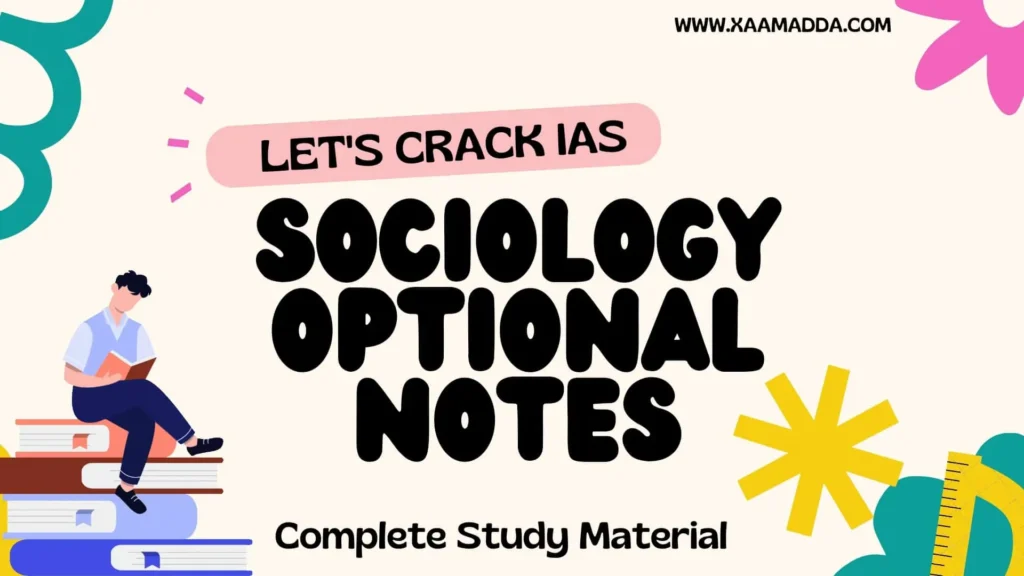

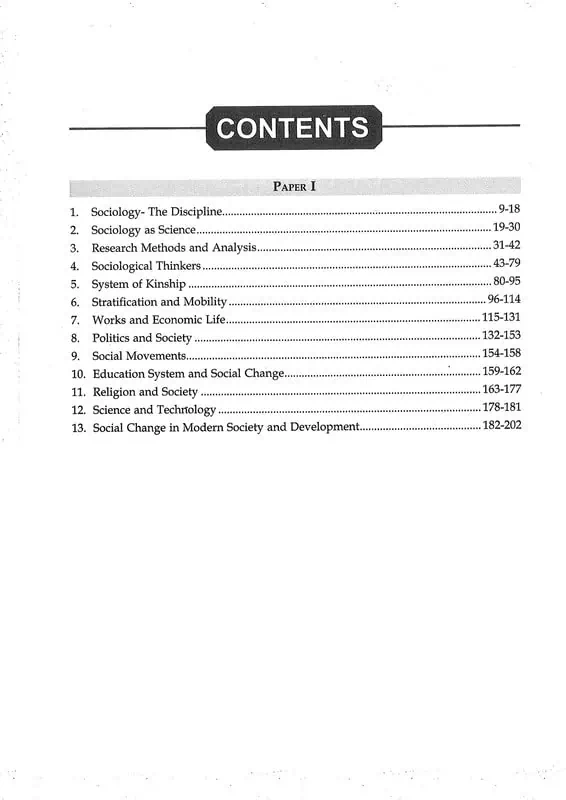
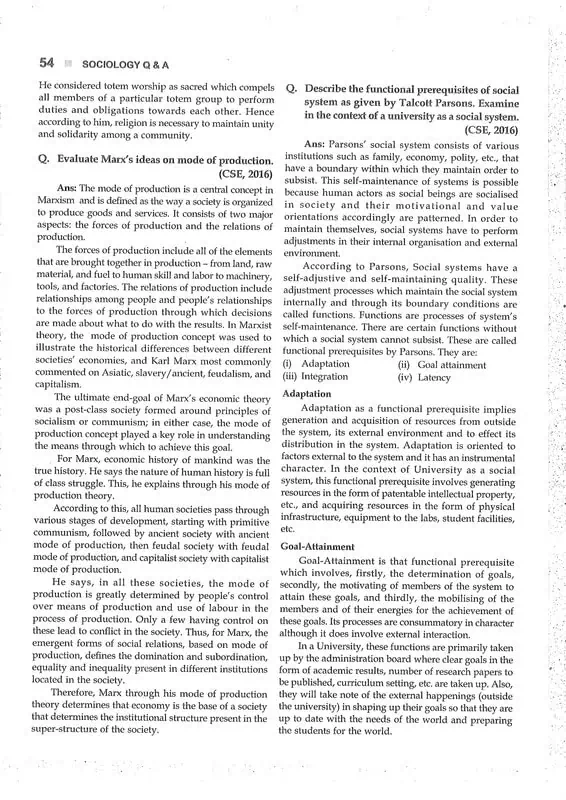
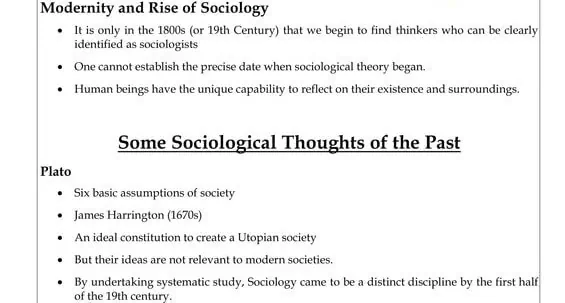
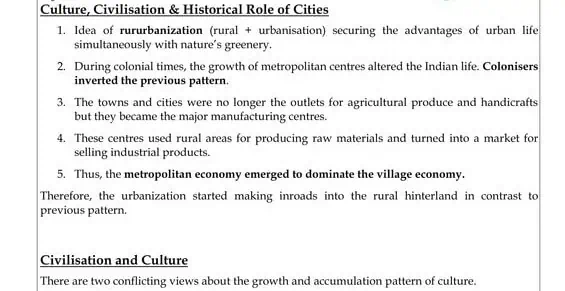
Sir
Are sociology notes of Upendra+ Mahapatra handwritten or printed. If it is printed it will be more beneficial.
its printed and latest